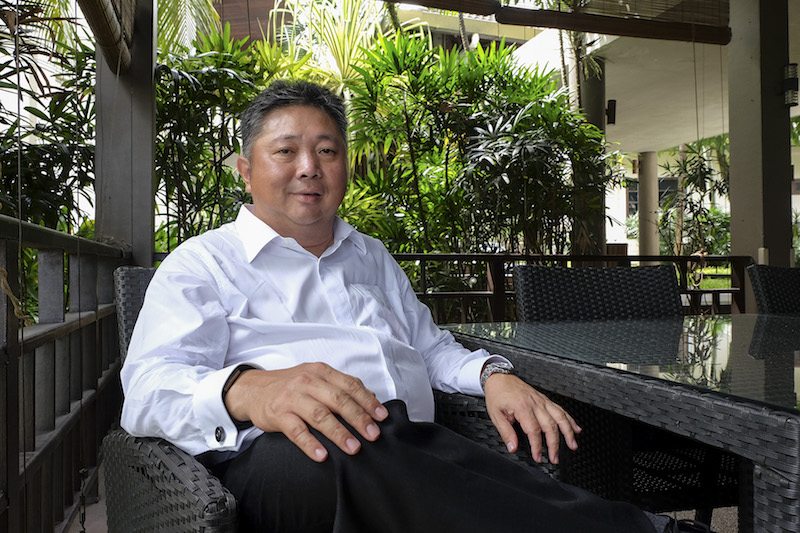KOTA KINABALU, May 11 — The complexities of shipping and transportation make it uncertain that the cabotage exemption beginning next month will lower goods prices in east Malaysia, said observers.
Universiti Malaysia Sabah economist James Alin said the exemption announced by Prime Minister Datuk Seri Najib Razak last Sunday would open up more direct shipping lanes to Sabah and Sarawak, but more measures were needed to ensure that consumer prices are lowered.
“It is another partial liberation. Based on my studies after the first liberalisation in 2009, there were no significant changes in the consumer price index immediately or in the years following the partial liberalisation,” he told Malay Mail Online when contacted this week.
He explained that the 2009 move opened up routes for foreign ships to travel between Kota Kinabalu and Port Klang and Port Tanjung Pelepas in Johor. The latest announcement meant that three more ports — in Penang, Kuantan and Pasir Gudang — were also opened for movement to Sabah.
The 2009 step also did not result in the anticipated increases in cargo and shipping loads between Kota Kinabalu and the two peninsular ports, he added.
“So basically, now even though all west Malaysian ports are opened up for import and export, this is of no significant difference to Sabah because almost all our load comes from Tanjung Pelepas and Klang anyway,” Alin said.
More critical for lower consumer prices in Sabah was the movement of goods between Kota Kinabalu and major local towns as well as with Sarawak, he concluded.
Alin said that the price of goods is also determined by factors other than cabotage including logistics, production materials, port efficiency and, most importantly, the ringgit’s value.
For instance, more than half of raw materials for the construction industry are imported, creating a surge in prices for the property market when the ringgit plunged against the US dollar in recent years.
Malaysian Industrial Development Finance Berhad chief economist Kamaruddin Mohd Nor agreed that local prices are more influenced by the size of the east Malaysian market than cabotage alone.
Although optimistic that the prices of goods will lower gradually after June when the cabotage exemption takes place, he said significant drops would depend on whether there is enough demand to merit the shipping changes to take advantage of the policy.
“Prices are dependent on the local demand from Sabah and Sarawak of which enable the existing logistic arrangement to bypass Port Klang as the main entry point,” he told Malay Mail Online.

Theoretically, foreign ships can bring in cargo to Sepanggar or any port in Sabah, Sarawak or Labuan and load up cargo for shipment back to Klang, which would lead to local shipping companies facing competition from their foreign counterparts, and translating into more competitive shipping rates within the country.
However, there is not enough load from Sabah to be shipped to other domestic destinations, which made it difficult for foreign vessel operators to lower shipping costs.
Alin argued that aside from the cabotage exemption, Putrajaya must also put in the infrastructure to accommodate higher shipping volumes, such as a more robust Customs presence and a more developed port to rival those in the peninsula.
“It is entirely possible; look at the Bintulu port. They are more efficient and handle more than all ports in Sabah combined,” he said.
Alin said that while many details of the exemption are still not known, preliminary assessment appears to be that consumers here must wait for more amendments to the Malaysian Merchant Shipping Ordinance 1952 before there is any significant change to the industry.
“Only then will the effects in terms of increase in cargo at Sabah’ ports and maybe lowering of the consumer price index can be observed,” he said.
The cabotage policy enforced since 1980 has been blamed for the 20 to 30-per cent higher prices in the state, causing long-standing contention among state industry players.
Najib’s announcement that Sabah and Sarawak would be further liberalised was largely welcomed, although there were calls for more details.
Parti Solidariti Tanah Airku president Datuk Jeffrey Kitingan questioned the “piecemeal liberalisation”, and insisted that the cabotage policy should be eliminated entirely.
“If shipping between Malayan ports and Sabah and Sarawak as well as ports within Sabah and ports within Sarawak are exempted from the cabotage policy, why is still cargo between Sabah and Sarawak not exempted?” he asked.
Jeffrey also said that Sabah should have a larger manufacturing sector, given that the state accounts for over 65 per cent of the country’s crude oil production. Currently, manufacturing only makes up 8 per cent of the state’s output.
Putrajaya should do more to encourage the sector in Sabah, which he said would then increase demand for shipping to and from the state.
“Other possible solutions could include a freight equalisation programme like that implemented for Tasmania, Australia. This could also reduce the price of goods in Sabah,” he said.



















